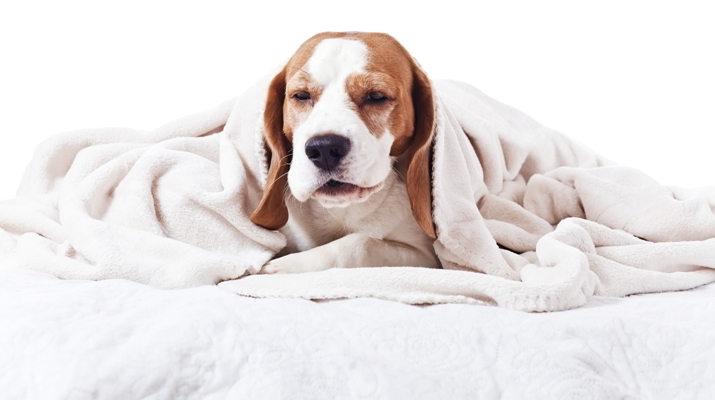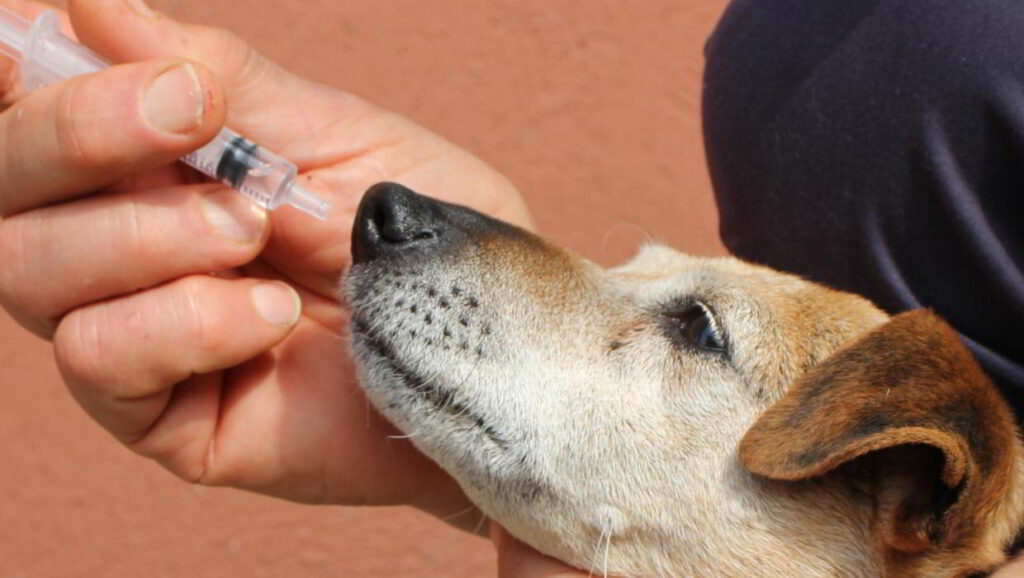Canine infectious respiratory disease complex-also known as kennel cough or canine infectious tracheobronchitis-is a highly contagious and common condition affecting puppies and adult dogs. The illness causes inflammation of the dog’s trachea and bronchi, which are tubes leading to the lungs.
All dogs are susceptible, but the disease is most common in dogs exposed to crowded conditions found in boarding kennels, doggy day cares, animal shelters, dog shows, bad breeders, or other stressful conditions.
Most cases cause only mild disease with signs that tend to be more aggravating to owners than dangerous to the dog. When they are damaged, the protective mechanism breaks down, which increases the chances that one or more infections will develop. This illness is rarely if ever contagious to humans.

Definition
Kennel cough is a condition that can be caused by any one or a combination of several different infectious agents. Warm the food for five seconds in the microwave to just below body temperature-about 95 to 98 degrees Fahrenheit. These agents damage the cilia (tiny hair-like projections) within an infected dog’s airways.
Cilia normally protect the respiratory tract by clearing away irritants like dust, bacteria, and other microorganisms with wave-like motions similar to the wind moving across a grassy field. But kennel cough can develop into life-threatening pneumonia.
Kennel cough spreads through the saliva and nasal secretions. It can happen by direct contact when your puppy sniffs or licks an infected dog or perhaps a contaminated object in the environment. However, coughing also transmits the agents through the air from one dog to another. Signs usually develop two to ten days following exposure, which is another good reason to quarantine new puppies.
Signs and Symptoms
The typical sign of kennel cough is, in fact, a chronic high-pitched honking cough. It can often be prompted by excitement, drinking, or gentle pressure applied to the base of the puppy’s neck. Your puppy tugging at its leash may result in a paroxysm.
Less commonly, there is also nasal or eye discharge and some dogs may suffer a slight fever or loss of appetite. The signs can last from a few days to several weeks.
Diagnosis and Treatment
Your veterinarian diagnoses kennel cough based on the puppy’s recent history and clinical signs. For instance, if your puppy recently was adopted from the shelter or kennel, or spent time at a boarding facility, those are all risk factors. In most cases, it’s not important to identify the infectious agent responsible for a dog’s symptoms, but tests can be run if that becomes necessary.
Kennel cough can develop into a vicious cycle. The infection causes irritation that prompts a cough. But the honking cough causes even more irritation. Mild cases may resolve at home with rest and nursing care, but if a puppy’s symptoms are severe or fail to improve relatively rapidly, veterinary care will be necessary.
Cough suppressants to relieve persistent coughing can help. Antibiotics may be required when bacterial infections are involved. Anti-inflammatory drugs and bronchodilators that open breathing passages to help the dog breathe may also be prescribed. If pneumonia develops, the dog will need more aggressive treatment.
Home Care
When your puppy suffers from congestion, there are home remedies to soothe its symptoms during convalescence.

Use a vaporizer to help unclog the nose. Put the pet in a fairly small room with a cool-mist humidifier and use it just the same as you would for a child a couple of times a day. That not only helps break up the congestion, but it can also moisten irritated eyes and nostrils and make them feel better.
If you don’t have a vaporizer or humidifier, a hot shower can work. Take the dog into the bathroom with you and run the hot shower so that the air becomes filled with steam. A 10-minute session several times a day works great. Don’t go for longer than that, though, because heated, moist air for too long can be hard for some pets to breathe, especially short-faced bulldogs and pugs.
Use warm wet cloths or cotton balls to soak and soften eye or nose secretions and clean them off. Don’t peel dried matter off because that can hurt or damage the skin.
Refusing to eat and drink can make a puppy even sicker. Ask your vet the bout offering pungent and more tempting foods to spark the sick pup’s appetite. The most common culprits are the bacteria Bordetella bronchiseptica and Mycoplasma, the canine parainfluenza virus, and the canine adenovirus-2 (CAV-2). That unlocks the aroma so the food smells more pungent and penetrates also a stopped-up nose.
Moisture also helps enhance the aroma, so try adding a bit of tepid to warm water or chicken broth to the puppy’s regular food. Run it through the blender to create a mush, and there’s a good chance that may tempt its appetite. If your puppy’s hunger doesn’t improve within 24 hours, call your veterinarian.
Prevention
Isolate any dogs with suspected kennel cough. They may remain contagious to other canines for several weeks.
Protective vaccinations are available. However, protecting your puppy from kennel cough is complicated by the fact that many different infectious agents could be involved, some of which can’t be prevented via vaccination.
Some vaccinations are given by injection, while others are given as drops in the nose or mouth to stimulate what’s known as a “local immunity.” Your veterinarian can advise you on the best option for your dog.
Dogs at high risk for kennel cough may benefit from annual vaccinations. These vaccinations may be given alone or in combination, and are often required before your puppy could be boarded at a kennel or attend puppy classes.
By Dog Care Tip


0 Comments